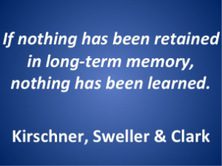‘…THEY WILL BE THE HEARERS OF MANY THINGS AND WILL HAVE LEARNED NOTHING*.’
At Saint Martin’s, in order for all pupils to achieve academic excellence, we deliver a knowledge-rich curriculum where teachers are the experts whose role it is to convey their knowledge and expertise to pupils. We believe that all pupils are entitled to learn about ‘The best which has been thought and said’ (Matthew Arnold). Our plans are inspired by some remarkable schools that have already embarked upon this project, the rationale for which is outlined here by Joe Kirby in his educational blog, Pragmatic Reform.
We have developed a Knowledge-rich curriculum, designed to develop memory and a student’s ability to recall information. Intelligence is malleable, in other words, pupils who put in more effort, who practise, who learn and memorise more ideas and knowledge are able to develop greater expertise and thereby become more intelligent than those who do not. Individual facts are of little use, however, if you acquire more factual knowledge, you are able to build a mosaic of information that is a prerequisite for deep understanding. In essence, the more you know, the more you are able to learn and understand. Knowledge is like Velcro, the more you have, the more that sticks.


